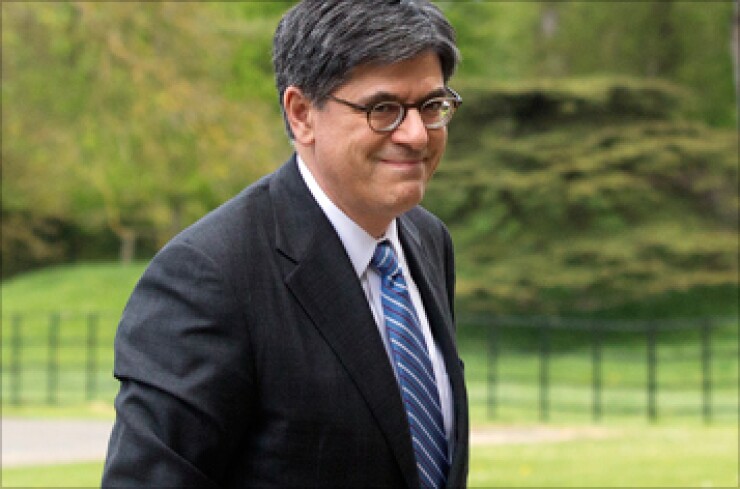
WASHINGTON – Treasury Department Secretary Jack Lew on Monday sent a letter to congressional leaders warning them that further inaction on a bill to help Puerto Rico pending in the House could lead to a taxpayer-funded bailout.
"Absent enactment of a workable framework for restructuring Puerto Rico's debts, bondholders will experience lengthy, disorderly, and chaotic unwinding, with non-payment for many a real possibility," Lew wrote in the letter. "The people of Puerto Rico will be forced to endure additional suffering. And, unless Congress passes legislation that includes appropriate restructuring and oversight tools, a taxpayer-funded bailout may become the only legislative course available to address an escalating crisis."
The Treasury secretary detailed the work that has been done in Congress to date to help the commonwealth, but pointed out that the situation is continuing to deteriorate as a bill that would provide some relief is stalled in the House.
Puerto Rico's Government Development Bank on Monday defaulted on about $400 million of a $423 million debt payment due.
The default is a precursor to a larger one that may occur on July 1 when the commonwealth has a $2 billion debt payment to make, $800 million of which would be for general obligation bonds guaranteed by Puerto Rico's constitution.
The commonwealth is dealing with roughly $70 billion in public debt and $46 billion in unfunded pension liabilities.
The bill, which is pending before the House Natural Resources Committee, seeks to balance competing Republican and Democratic interests by creating an oversight board that can both get Puerto Rico's fiscal house in order and start the debt restructuring process.
It calls for the creation of a seven-member, presidentially-appointed oversight board that would have the power to require balanced budgets, address pension liabilities, and file debt restructuring petitions on behalf of the commonwealth and its entities in a federal district court as a last resort if voluntary negotiations do not succeed.
Committee members and staff are still working on revisions to try to gain enough supporters for passage. The current version drew strong criticism from a number of Republicans and Democrats. Conservative Republicans said they would not vote for the bill because it closely resembles Chapter 9 bankruptcy and would set a dangerous precedent for financially troubled states in the future. Democrats are concerned that the restructuring process would not be sufficient to begin dealing with the debt crisis quickly.
Puerto Rico Gov. Alejandro García Padilla said during a televised Sunday address before the Monday GDB default that his decision to allow the default was "painful" but was necessary without a congressional solution.
"We would have preferred to have had a legal framework to restructure our debts in an orderly manner," he said. "But faced with the inability to meet the demands of our creditors and the needs of our people, I had to make a choice. I decided that essential services for the 3.5 million American citizens in Puerto Rico came first."
Resident commissioner Pedro Pierluisi, Puerto Rico's representative in Congress, used the GDB's default as another opportunity to urge Congress forward on the stalled bill.
"This is a national issue," Pierluisi said in a statement. "To alleviate the crisis, Congress must enact bipartisan and balanced legislation that, on the one hand, empowers Puerto Rico to restructure its debts in a fair and orderly manner and, on the other hand, establishes an independent, federally appointed and temporary oversight board to help the Puerto Rico government better manage its finances and to play a role in the debt restructuring process."
Rep. Darrell Issa, R-Calif., in a column published by the National Review on Monday, argued for a strong control board for the commonwealth and warned against giving the commonwealth access to bankruptcy court.
"Puerto Rico's problems are symptomatic of irresponsible budgeting and careless overspending, and the only remedy is long-term financial reforms," Issa wrote. "These reforms must rein in the excessive spending that plagued the Commonwealth for several decades and must get the island off the addictive promise of easy money."
He argued the board needs to have "the independence to make the tough choices necessary to get the island back on strong footing."
"As history proves, nobody learns much from a bailout other than that it is permissible to one day return to the same adverse financial situation," he wrote. "We can't afford to keep learning these lessons."





